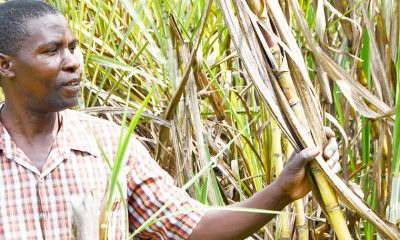Experts Warn of Impending Crisis Due to Low Fertilizer Use
In a concerning development for Uganda’s agricultural sector, experts are sounding the alarm over the nation’s inadequate uptake of fertilizers. This issue, they argue, is not only hindering current crop yields but also jeopardizing the long-term sustainability of agriculture in the country.
According to agricultural and soil specialists, Uganda’s soil fertility has been steadily declining, leading to a worrying trend of diminishing nutritional value in crops. This decline has prompted shifts in food-sourcing regions within Uganda, and if left unaddressed, it could ultimately lead to a complete collapse of agricultural productivity.
Recent data reveals that Uganda’s fertilizer usage averages between 1.8 to 3 kilograms per acre, significantly below the regional and global averages. At the launch of a new bio-fertilizer engineered with Danish technology, Prof. Julius Zaake, Uganda’s leading soil expert, underscored the urgent need for revitalizing the country’s overworked soil through comprehensive fertilization efforts.
Prof. Zaake highlighted Uganda’s failure to meet its 2006 commitment to significantly increase fertilizer usage to 50 kilograms per acre by 2015. He warned that without addressing soil degradation, Uganda’s ambitions of achieving commercial agricultural export targets would remain elusive.
The implications of low fertilizer usage extend beyond diminished crop yields. With agriculture employing up to 70 percent of Ugandans, the sector’s sustainability is crucial for national food security and economic stability. However, the current trajectory, characterized by negative nutrient balances in key food-producing regions like the western region, paints a grim picture for the country’s future food security.
Alex Otuti, a senior agricultural inspector, emphasized the severity of soil degradation in certain parts of Uganda, necessitating the use of synthetic fertilizers to kickstart soil rehabilitation efforts. He stressed the importance of integrating organic farming practices alongside synthetic fertilization to achieve sustainable soil health.
While large-scale plantations such as tea and sugar estates are relatively heavy users of fertilizers, small-scale farmers, who constitute a significant portion of Uganda’s agricultural workforce, often lack access to these essential inputs. This contributes to the national average of low fertilizer usage.
In response to these challenges, Abdul Karim Dedya, the Country Director of Biofertilizer Africa Uganda Limited, introduced a groundbreaking root zone technology fertilizer named “Transform”. Developed after three years of intensive research, Transform promises to not only enhance soil fertility but also improve overall plant health, offering a holistic solution to Uganda’s agricultural woes.
As Uganda grapples with the urgent need to address its low fertilizer usage and deteriorating soil quality, concerted efforts from government, agricultural stakeholders, and the private sector will be essential to safeguarding the future of the country’s agriculture. Failure to act decisively risks compromising food security, livelihoods, and economic prosperity for millions of Ugandans.
















